#kikongo language
Explore tagged Tumblr posts
Text
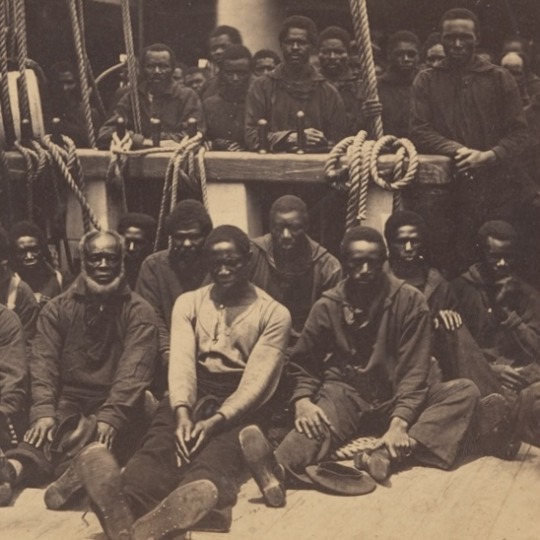
Historians from Southern Illinois University in the Africana Studies Department documented about 20 title words from the Kikongo language are in the Gullah language. These title words indicate continued African traditions in Hoodoo and conjure. The title words are spiritual in meaning. In Central Africa, spiritual priests and spiritual healers are called Nganga.
In the South Carolina Lowcountry among Gullah people a male conjurer is called Nganga. Some Kikongo words have a "N" or "M" in the beginning of the word. However, when Bantu-Kongo people were enslaved in South Carolina the letters N and M were dropped from some of the title names. For example, in Central Africa the word to refer to spiritual mothers is Mama Mbondo. In the South Carolina Lowcountry in African American communities the word for a spiritual mother is Mama Bondo. In addition during slavery, it was documented there was a Kikongo speaking slave community in Charleston, South Carolina
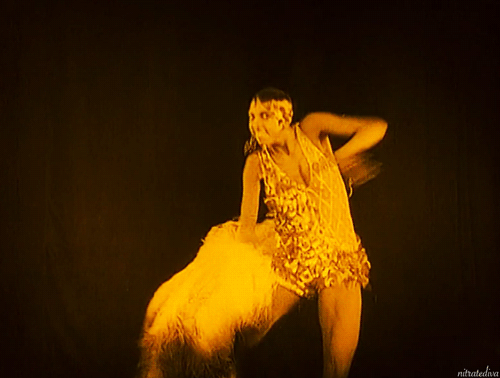
#nganga#mama mbondo#slave community#charlestonch#charleston south carolina#afrakan#kemetic dreams#africans#african#brownskin#brown skin#afrakans#african culture#afrakan spirituality#central africa#kikongo language#gullah#gullah geechee#gullah gullah island
93 notes
·
View notes
Text
Exploring the Rich Linguistic Heritage of Kikongo and Kituba Languages in the Kongo Kingdom
Uncovering the Secrets of the Kikongo Language and People Located in the heart of Central Africa, the Kikongo language has a rich cultural heritage that has been passed down through the centuries. This ancient language spoken by the Bakongo people provides fascinating insight into the region’s history, traditions and way of life. In this article, we delve into the fascinating world of the…
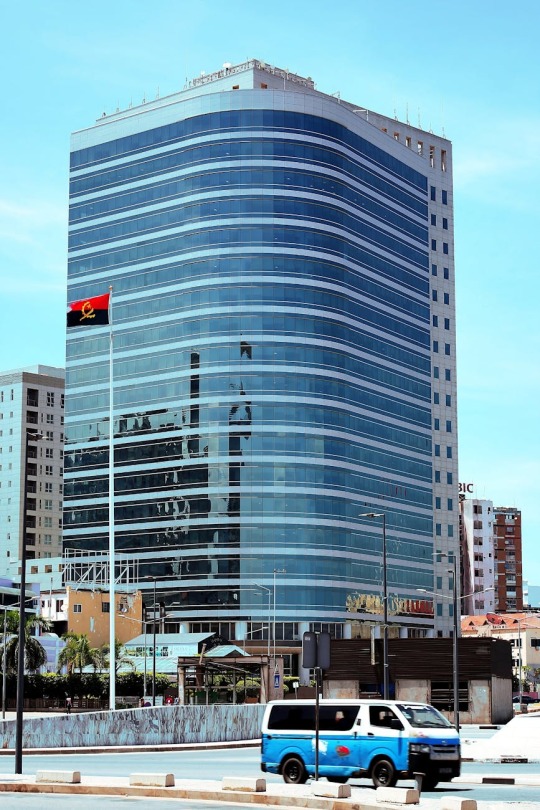
View On WordPress
#African Languages#Bakongo people#Bantu languages#Cultural Heritage#inclusivity#Interpretation Services#Kikongo language#Kongo Kingdom#Language Preservation#LanguageXS
1 note
·
View note
Note
do you believe Love Deterrence was kind of a love confession from Kaz to BB?
Sort of. Kind of. I do think it was about BB, and we know the lyrics are written by Kaz.
I don't know if we ever find out all the languages that BB speaks, obviously English, Russian, Spanish, that leaves iirc 3 more languages he speaks, and I don't know if Japanese is ever confirmed as one.
It seems likely given that he speaks to Kojima in PW, and that BB speaking other languages is translated for the player, but Venom also speaks to him and gets a verbal response in TPP, and we know that was in English due to [mumbled summary of TPP plot]. That's probably the closest we get to confirmation.
Anyways my point with that is, I tend to think that BB doesn't speak Japanese, at least not around Kaz, and Kaz intentionally wrote Love Deterrence in a language he didn't think BB knew so that he could get his feelings out without the utter mortification of actually sharing them.
#mgs#bbkaz#if anybody actually knows or has hunches about BB's language list im all ears i want to know#or any of them really#we know liquid “speaks arabic like a native” which is fascinating. like. which dialect?#khaliji would probably make the most sense since he was also in the gulf war#but almost equal chance of anything else as well given it is Year Of Our Lord 2005 when this takes place and uh#bestie we (westerners as a whole) did not really uhhh...what is the word...care...about the diversity of the arab world at that time#but idk its funny to me that *that* is what they choose to point out when he literally speaks kikongo for a large portion of his childhood
33 notes
·
View notes
Text
I kind of want to learn (self teach) a language based on the most spoken language of some of my non-european genetic ancestry regions.
the only language remotely close to something i know would be Vietnamese since I've attempted East Asian languages before, but I'm pretty sure there's a lot of differences between it and Mandarin/Korean/Japanese
#academia#black studyblr#black academia#studyblr#student#langblr#language learning#languages#yoruba#vietnamese#quechua#akan#bambara#kikongo#tamil#choctaw#culture#poc langblr#poc studyblr#poc academia#poc dark academia#let's ignore that i forgot to add benin and togo to the poll..... 😭
6 notes
·
View notes
Video
youtube
Yannick Afroman - Bakongo ft. Sam Mangwana, Socorro, Kyaku Kyadaff, Gilmário Vemba
Yannick Afroman - Bakongo ft. Sam Mangwana, Socorro, Kyaku Kyadaff, Gilmário Vemba
#youtube#Yannick Afroman#Bakongo#Sam Mangwana#socorro#Kyaku Kyadaff#Gilmário Vemba#Kongo Dia Ntotila#Bantu#Kikongo#Mukongo#People#DRC Congo#Cabinda#Angola#Languages#português#culture#food#countries#tribe#music
0 notes
Note
Can you explain your process on how you chose human names, or how you found them I can't find shit on African-language names that aren't European.
So, my tip is that you probably wanna get more specific- if you look up stuff like "Republic of Congo Names," you're gonna get a list of the most popular names used in the Republic of Congo, which skews towards European style names. However, if you look up "KiKongo names" or "Luba names", you're much less likely to get European names. I also cross reference any names I pick out as an additional precaution- so if I like a certain name from a list of "X ethnicity" names, I peruse around for people from that ethnicity and see if that name actually exists among them!
#Tho i will say the human name for my lebanon I just chose 'Latif' because it suits him and I wanted to keep the L naming theme of the Levant#ask#shamangus#hetalia#tips
30 notes
·
View notes
Text

information
basics
full name: Elizabeth Irene Riley {{Birth-Certificate: Elikapeka Ailine Alohaekauneikahanuola'Ilikea'wahine Riley}}
nicknames / aliases: Beth, Apples, Konachino, Jelly Bean {{the nurse shark}}
height: 5 foot even
age: 27-35 {verse dependant}
spoken languages: English, Pidgin, French, Latin, Spanish, Basic/some: Russian, German, Greek, Japanese, Mandarin, Kikongo {Kituba}, Masalit
physical characteristics
hair color: deep chestnut/mahogany brown
eye color: green/honey brown {central heterochromia iridum}
skin tone: sand/olive with warm undertones { "deep autumn"}
body type: delicate/petite {ectomorphic/triangle}
dominant hand: left
posture: straight, graceful, poised
scars: The shark bite scar/muscle atrophy/shortened tendon {right leg}
tattoos: sea turtle with the Hawai'ian island chain on its shell, with a hibiscus {left hip} {eventually the tree of life as above/so below near the bottom of her neck/between her shoulder blades} She has three sub-dermal studs just inside the arch of her hip.
birthmarks: freckles around her chin, across her nose, sharp 'little' teeth
most noticeable features: Wide doe-eyes, 'fangy' smile, nose crinkles when she does so unguarded/genuinely.
childhood
place of birth: Pearl City/Honolulu, O'ahu, Hawai'i. {for Turn: Brooklyn, New York}
siblings: Andrew Riley, Jayden Morgan
parents: The Admiral, Iwalani Kahananui {Riley} Stern
adult life
occupation: ER Nurse/ER Doctor {verse dependant, might be NYPD or SHIELD agent} {for Turn: Wealthy Socialite}
current residence: Verse dependent {for Turn: Philidelphia, Boston, NYC} close friends: this is an entire blog roll roster of my beloved mutuals, so verse dependent? {For Turn: Ben and Samuel Tallmadge, Caleb Brewster, Anna Strong, John Simcoe, Malcolm Baker}
relationship status: Verse dependent. Beth doesn't so much date as she lurks, closely. Waiting for all parties involved to tire out and just move in.
children: Beth is incapable of having children, but loves everyone else's. {Turn: None...yet.}
criminal record: various juvenile charges for destruction of property, vandalism, and the like. All neatly sealed and never to be spoken of again.
vices: entirely too fond of a glass or six of wine in the 'evenings'. workaholic.
sex and romance
sexual orientation: demi-sexual {{I would say she leans towards heterosexual but the body isn't exactly a concern for her, so long as she likes/feels connected to the person}}
turn-ons: Intelligence, kindness, wittiness, passionate, idealism, honesty, empathy, caring for other people, the environment, animals.
turn-offs: Cruelty, abuse {physical/verbal/of power, etc}, lack of respect, refusal to accept boundaries, one night stands
love languages: physical touch, acts of service, quality time
relationship tendencies: Beth tends to be slightly oblivious when it comes to relationships. She is avidly keen in getting to know people, cannot help but to try and nurture them in what seem to be natural ways as much as she's able to. She doesn't experience sexual attraction until well after feeling bonded to someone. This can lead to many mixed signals. When it comes to love/sex/romance, Beth tends to be a little naive and extremely trusting,and that has always broken her heart in the past. Beth doesn't do one night stands, or casual hook-ups, though she doesn't judge others for them. Some people might consider her clingy.
miscellaneous
hobbies to pass time: surfing, dancing, knitting, reading, gardening, card games, chess. {Beth is amusingly aggressive when it comes to competitive games/sports}
mental illnesses: Beth lives with bipolar disorder, shows signs of childhood trauma, and tends toward fear of rejection/abandonment self confidence level: Beth has all the self esteem of a banana slug outside of a medical-treatment setting. ~*~ tagged by: my darling M @honorhearted tagging: Tell me about your muses!
9 notes
·
View notes
Text
I have something beautiful to share with you all: give this a listen. What do you think it is?
There's many different versions of this song, just type "Misibamba" on spotify or youtube, and enjoy. It's specifically an AfroArgentinean song, with most of the versions of this song recorded in Buenos Aires. According to african scholars, the song was originally in kikongo, possibly from the Benguela Nation, and it's traditionally sung to call on God (Nzambi Npungu). Some of the words have gone through slight (and not so slight) pronunciation or spelling changes but it's still recognizable for scholars in Angola!
What scholars say about it being originally used to call on God fits our own oral tradition and custom too, it's a religious song. Our elders sing it in times of need, when you need that extra ancestral and divine protection or guidance, and Elders say it was originally sung by our Ancestors in the slave ships as they were crossing the atlantic !!!
And it's not even the only song that remains! there's many other songs in african languages and derived dialects, remembered and sung by afroargentine Elders across the country. After so many years of denial and historical whitewashing, I'm so, so deeply grateful for all the afroargentine and african scholars, and afroargentine collectives and associations, working to preserve our music and dialects, and finally bring them back to the light, to remember and honor our Ancestors.
#Afroargentina#Afroargentinean#Afrolatinos#Afrolatines#Afroargentine#Afroargentines#history#afroargentine history#kikongo#angola#benguela#Nzambi Mpungu#ATRs#ADRs#African Traditional Religions#african diaspora#black argentina#black argentines
19 notes
·
View notes
Text

Bakongo (also known as Mkongo or Mukongo). In one of the Bantu languages, Kongo, the word “Ba” means “People” while “Kongo” according to an adventure means “Hunter” while according to others it means “Gathering” or “Mountains”. There is yet to a decisive context for it. Even the term “Congo” was a term used to refer to black people who spoke “Kikongo” in Cuba, America. The Bakongo people speak Kinkongo language which also compromises of 9 other language variations for different sub-branches of the Bantu tree; for example the Kivil dialect by the north coast, the Kisansolo in the central dialect, amongst others.
The 13th – 14th century saw the creation, transition, and building of the great Kingdom of Kongo. The kingdom succession was based on voting by the noble of the land which kept the king’s lineage among royalty. In the late 14th century, what was supposed to be a quick stop for the portugese
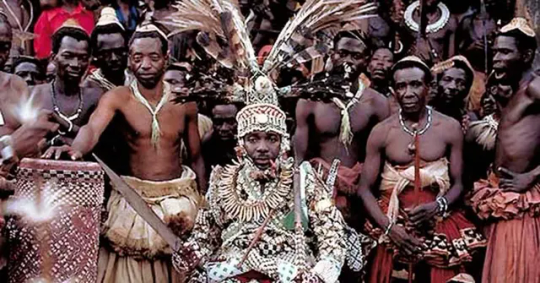
Allegedly, the Portuguese were in search of a route to India for opportunities when one Diego Cao found the river Congo. Moving south he and his companions found the people of Kongo in an organized system; valuable currency, trading relations, transport infrastructure, port settlements, and open-minded people.
The people of Kongo accepted them and even the king willingly accepted Christianity in a show of solidarity with these new people. Once a man, Chief Muanda, warned the people of the coming doom of slavery of the Bakugo clan which will destroy the kingdom, he said it will begin with the visitation of foreigners but people choose what they want to see even though he was later right. By the 19th century; the Kingdom of Kongo had completely fallen, the Bakongo people had fully divided and spread across different parts of the continent.
The Bankongo people are the third-largest group in Angola but in the 17th century, they lost a war to Portuguese during the repression. They moved throughout the continent occupying the northern regions of places like Cabinda, Congo, Angola and Zaire. In the 20th century, the Bakongo created a political party called the Union of Angolan Peoples (UPA) in an attempt to bring back all the Bakongo people, eventually, they decided an independent country filled with different tribes was much better for their society. Soon after that decision, they fought along the Ovimbundu and the Mbundu people for a better Angola.
In 1975, Angola gained its independence with a lot of Bakongo people being the faces for the win but as soon as the Mbundu people took over the ruling power there was discrimination among all three tribes. In the present time, their largest numbers are in Congo and though they’ve been through a lot, they have kept some of their cultural practices.
11 notes
·
View notes
Text
!! ️SCHOOL WILL NEVER TEACH YOU THIS👇🏿
|| THE AFRICAN ORIGIN OF THE NAME ISRAEL ||
The teachings of Bundu Dia Kongo.
Ne MUANDA NSEMI teaches the Makesa mu Nzila Kongo: the mystery of the name, because the name is the carrier of evil and beneficial influences to the one who bears it.
The name is also linked to a person's state of being.
Como example: with Zulu Makeba, with MBEMBA ZULU, with NKEMBO WA MONESUA, with NSANSUKULU A KANDA, YAYA VITA KIMPA, MFUMU KIMBANGU, with MUANDA NSEMI, NAVITA NGOLO, MFUKA FUAKAKA MUZEMBA etc.
Ne MUANDA NSEMI also teaches Makesa mu Nzila Kongo that speaking French, English is not synonymous with being intellectual.
Africans have become, complexly, foreign languages fanatics. Africans believe that giving a French, English or Hebrew name would have more meaning than in their mother tongue.
Example:
-that one called PEDRO thinks it's better to be called a stone than to be called TADI in his mother tongue which is KIKONGO.
- whoever is called ELOHIM believes this designation is divine in origin, but refuses to be called ELIMA in their language, while ELOHIM= ELIMA in Kikongo.
.
Ne MUANDA NSEMI teaches the Makesa mu Nzila Kongo that the word KELIMA means a Messenger God, a Genius, an Angel. When the letter 'K' falls, KELIMA becomes ELIMA, in the plural BIKELIMA: the flashing, the SEZIMA, the SELIMA.
.
Elima word expansion, adding letters. Oh give the words Elohima Elohim in Hebrews
Eli, El, stands for ELIMA, Kelima.
Give names like: EL Fatah, EL Chadai, ELION.
The abbreviation " EL " is also in the name of God, Archangels, Prophets in the Hebrew language as: Deus Yave Israel. Archangel Michael, Michël, Raphael, and other names such as: Ishmael, Samuël, Daniël, Emmanuel, Ezequiël...
.
Kelima, Elima is synonymous with God of Simbi, Nomo, a messenger God, a Genius of Nature, an Angel, a Radiant of Light.
No more no less On the cross Jesus shouted Elima (=Eli), Elima (=Éli), why have you forsaken me?
.
A Kelima, an Elima is a Great Mulimu, a Great Spirit of Nature: Each Elima has its own name:
And HOGU BATALA, OUR KAMBISI, KOLOKOSO, OUR KINZOLA, OLONGO, OUR MANDOMBE KALI, LUEZI (LUEJI, LUEJ, RUEJ) , RA, ISISI, MANATA LUDI etc.. These are some famous Elima from Egyptian BUKONGO.
.
Isis stands for Isisi: a goddess (an Elima) of Ancient Egypt.
.
Ra is a male Elima (+), isisi a female (-).
IS, RA, EL giving Israel. It is the fusion of positive (Ra) and negative (isisi), the union of man and woman gives an androgynous Elima (EL), both male and female. An equal Elima is called Mahungu, Malunga, Ilunga, Complete Being, made in the image of the Great God KONGO KALUNGA.
.
The holy book of Kongo (MAKONGO) religion teaches that Kana was the land of High Priest MELCHISEDEK.
Mukana verb means Nkua Vema, an enthusiastic, a passionate, a jealous, a fanatic.
Kikana is fanaticism: Bakana ba Nzambi are fanatic of God, KANA, KANANA country.
Originally Kana and Madian were inhabited by blacks
Midian was inhabited by the High Priest, Gestro (Yetelo), this High Priest of Bukongo teaches Moses to contact the Angel of the people of Israel who is the God of Israel.
Kana was inhabited by High Priest Melchisedek, this High Priest of Bukongo teaching Hibrahim, Abraham to enter into communion with God of Israel.
.
In kikongo language the sun is called Ntangu lowa the Great Nabi Kongo say the heart of the sun is called KISEDEKI.
-so MAMBU MELE KISEDEKI i mean problems went to the heart of the sun. The word MELE is a Kikongo verb form from the verb KUENDA which means to go.
.
In Bukongo, a Great Nabi Kongo that serves as a transmission channel between the Assemblies of God (Temple) and the Heart of the Sun, bears the grand opening title of Ne MELE KISEDEKI.
.
The bible says Melchisedik king of Salem brought bread and wine. He was a sacrifice of a very high God. He bless Abraham by the most high God
Ibrahim (Abraham) gave Dime to Mechisedek (Genesis 14: 18-20)
So here is Abraham, the first prophet of God of Israel) who is blessed by a High Priest black a Great Nabi Kongo, Ne MELE KISEKEDI.
Abraham father of the faith of the white Hebrews pay Dime to the Priest of the Most High God Ne MELE KISEDEKI King and Priest of KANA we will distort in Kanan Canaan because of their variants Kanana.
- Thus Abraham (Ibrahim) imitating copying the language of the people of Kana (THE BAKONGO) and distorting the graft in the Hebrew language, these words distort the source in Kikongo
- in Kikongo language
Excerpt from the book The Mysteries of KIKONGO
Written by NE MUANDA NSEMI Nlongi' to KONGO.
Kinshasa on 22-11-1995
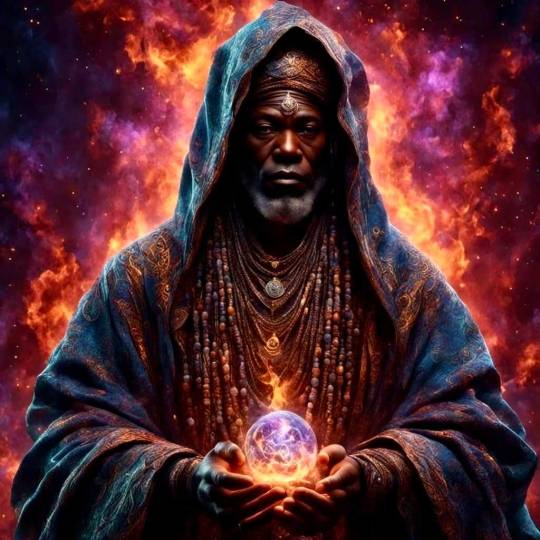
9 notes
·
View notes
Text

A nganga (pl. banganga or kimbanda) is a spiritual healer, diviner, and ritual specialist in traditional Kongo religion. These experts also exist across the African diaspora in countries where Kongo and Mbundu people were transported during the Atlantic slave trade, such as Brazil, the southern United States, Haiti and Cuba.

Nganga means "expert" in the Kikongo language. The Portuguese corruption of the meaning was "fetisher." It could also be derived from -ganga, which means "medicine" in Proto-Bantu. As this term is a multiple reflex of a Proto-Bantu root, there are slight variations on the term throughout the entire Bantu-speaking world

In the Kingdom of Kongo and the Kingdom of Ndongo, expert healers, known as banganga, underwent extensive training to commune with the ancestors in the spiritual realms and seek guidance from them. They possessed the skill to communicate with the ancestors in the spiritual realm, or Ku Mpémba, as well as divining the cause of illness, misfortune and social stress and preparing measures to address them, often by supernatural means and sacred medicine, or minkisi.
They were also responsible for charging a nkisi, or physical objects intended to be the receptacle for spiritual forces that heal and protect its owner. When Kongo converted to Christianity in the late fifteenth century, the term nganga was used to translate Christian priest as well as traditional spiritual mediators. In modern Kongo Christianity, priests are often called "Nganga a Nzambi" or "priests of God."[citation needed] The owner and operator of an nkisi, who ministered its powers to others, was the nganga.
An English missionary describes how an nganga looks during his healing performance:
Thick circles of white around the eyes, a patch of red across the forehead, broad stripes of yellow are drawn down the cheeks, bands of red, white, or yellow run down the arms and across the chest.... His dress consists of the softened skins of wild animals, either whole or in strips, feathers of birds, dried fibres and leaves, ornaments of leopard, crocodile or rat's teeth, small tinkling bells, rattling seedpods...
This wild appearance was intended to create a frightening effect, or kimbulua in the Kongo language. The nganga's costume was often modeled on his nkisi. The act of putting on the costume was itself part of the performance; all participants were marked with red and white stripes, called makila, for protection.
The "circles of white around the eyes" refer to mamoni lines (from the verb mona, to see). These lines purport to indicate the ability to see hidden sources of illness and evil.
Yombe nganga often wore white masks, whose color represented the spirit of a deceased person. White was also associated with justice, order, truth, invulnerability, and insight: all virtues associated with the nganga.
The nganga is instructed in the composition of the nkondi, perhaps in a dream, by a particular spirit. In one description of the banganga's process, the nganga then cuts down a tree for the wood that s/he will use to construct the nkondi. S/he then kills a chicken, which causes the death of a hunter who has been successful in killing game and whose captive soul subsequently animates the nkondi figure. Based on this process, Gell writes that the nkondi is a figure an index of cumulative agency, a "visible knot tying together an invisible skein of spatio-temporal relations" of which participants in the ritual are aware
#nganga#african#afrakan#kemetic dreams#africans#afrakans#african culture#afrakan spirituality#african american#african spirituality#nkondi#nkisi#central africa#gells#spatio temporal
7 notes
·
View notes
Video
tumblr
This cut scene is never in English once I get a Kikongo and Afrikaans interpreter-which is really cool but I wonder how Venom is doing this. Is one of the interpreters feeding him the language through his radio? That’d be kinda cool actually. “Here Boss just repeat after me!” Or someone told him ahead of time enough to communicate.
27 notes
·
View notes
Text
World Literature Series: L'anté-peuple
TITLE: L'anté-peuple (French) or The Antipeople (English)
AUTHOR: Sony Lab'ou Tansi (born Marcel Ntsoni)
DATE PUBLISHED: 1983
COUNTRY, REGION, OR PEOPLE: Congo
LANGUAGE: French
TYPE: Novel
BACKGROUND: Tansi was the oldest of seven children born in 1947 to a family living in a village in what was then the Belgian Congo. Tansi spoke three languages (Kikongo, French, and English), and he spent his life writing, teaching, and performing plays.
Tansi’s works speak of the difficulties of life in postcolonial Africa. Traditional wisdom lends strength to characters, but their surroundings are bleak, forcing people into rough situations and rougher choices with no good options.
L'anté-peuple won the Grand prix littéraire d'Afrique noire in 1983.
SYNOPSIS: Dadou is the respected principal of a school for girls in Zaire. He is attracted to some of his students, and in his determination to resist them (especially Yavelde and her cousin Yealdara), he turns to drinking.
However, Yavelde kills herself and, in a note, falsely accuses Dadou of making her pregnant. The village reacts with violence and Dadou is sentenced to prison, where he stays for four years until Yealdara can help him escape. Dadou escapes across the Congo River, but he can’t stay in the nearby fishing village forever, and Yealdara is having trouble finding him to reunite.
THEMES: Power, politics, the law, corruption, love, sex, existentialism
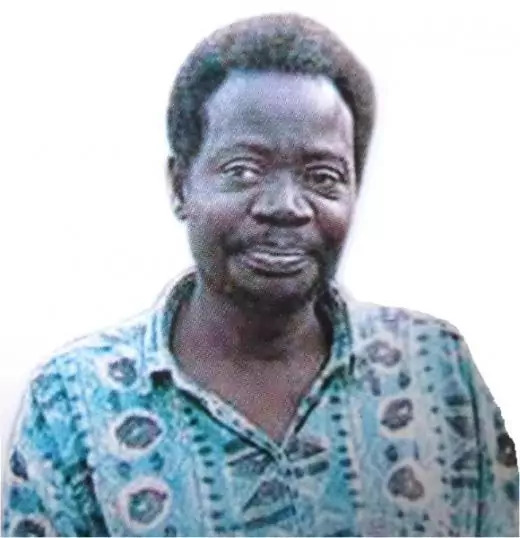
[A color photograph of Tansi, a Black man with short hair and a blue shirt]
Main post for the World Literature series.
#history#tbr#africa#congo#books#L'anté-peuple#The Antipeople#Sony Lab'ou Tansi#the 80s#1980s#Congo#Belgian Congo#democratic republic of the congo#french#tw violence#tw suicide#tw sex
32 notes
·
View notes
Text
Tuele ku Ngo", they said (translate "We are going to the leopard", in the Kikongo language).I poured Libations to Legba and the Simbi at the water 💧 Ilanga rose from behind the clouds Simbi Inunza came closer to the shore and I asked for permission to go into the waters. I left then offerings and they gave me blessings and wisdom and cleansed my head with protection to see clearly. A whisper spoke to me as I went underwater approaching the realms of Kalunga in Kongo and Ginen in Ayiti. Supreme blessings and thanks to Imamou for guiding me to my home. Asè Ayibobo Avém Bilolo
Nsala Malekum Kongo

4 notes
·
View notes
Text
The Stono Rebellion was the largest and bloodiest slave rebellion in US history:
It was a product of colonial South Carolina, and here it is worth noting that this colony was a majority Black colony ruled by the iron fist by a tiny smattering of white people. This pattern meant that a slave rebellion, where it was launched, could be very destabilizing indeed. And it must never be forgotten that the slaveowner lived in mortal fear of what his enslaved captives could and would unleash against him. And that each opportunity they had to do it, they took.
The rebellion was also a case of those who were taken captive who kept their African roots and used battle cries in the Kikongo language, with the leader Jemmy likely a veteran of wars the Kingdom of Kongo fought with the slave traders in Africa.
#lightdancer comments on history#black history month#us history#colonial american history#black resistance#slavery and resistance
5 notes
·
View notes
Text
Starting in the 1600s, however, a growing demand tempted many ship captains to make the longer voyage to the British colonies in North America. Roughly one of every four slaves imported to work the cotton and tobacco plantations of the American South began his or her journey across the Atlantic from equatorial Africa, including the Kongo kingdom. The KiKongo language, spoken around the Congo River's mouth, is one of the African tongues whose traces linguists have found in the Gullah dialect spoken by black Americans today on the Coastal Islands of South Carolina and Georgia.
— King Leopold’s Ghost (Adam Hochschild)
#languages#linguistics#history#colonialism#racism#slavery#creoles#kingdom of kongo#usa#african americans#kongo language#gullah language
2 notes
·
View notes